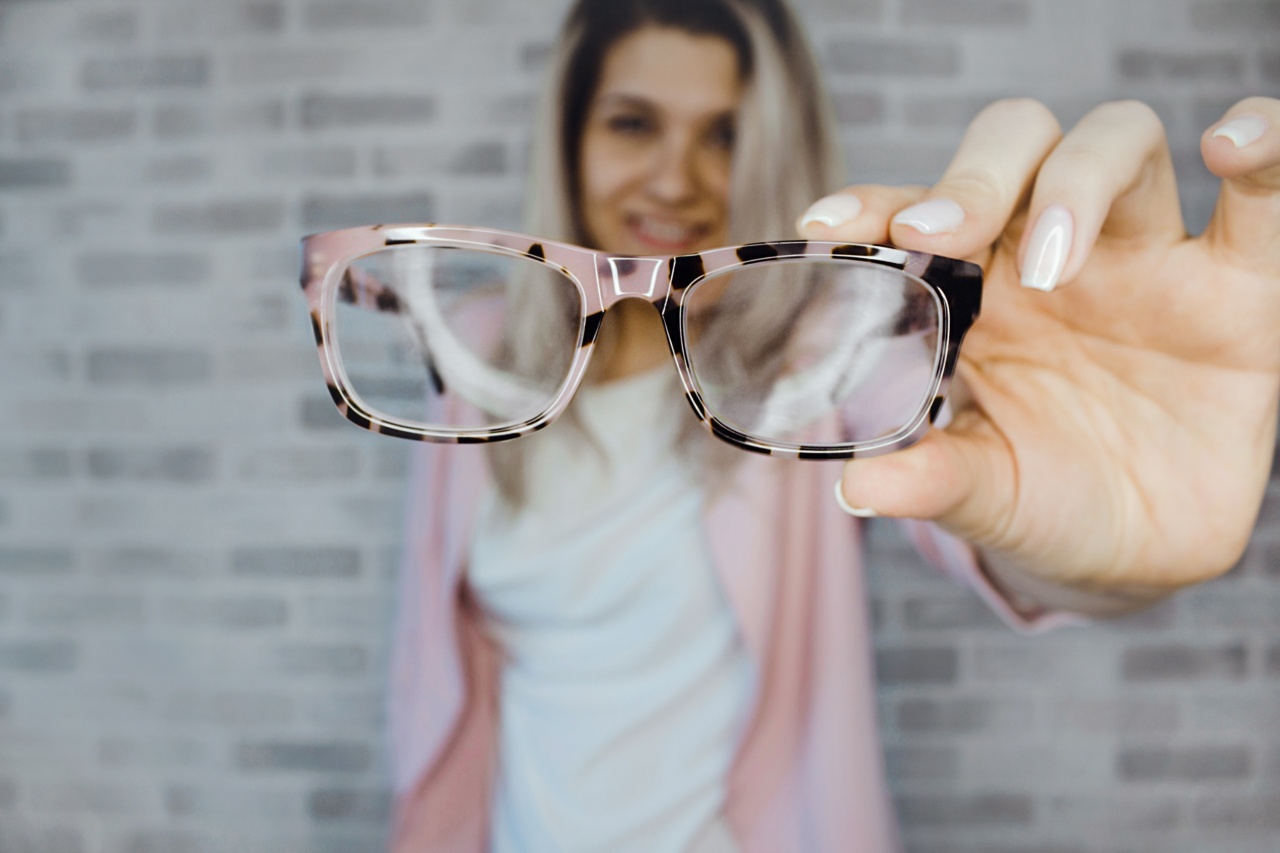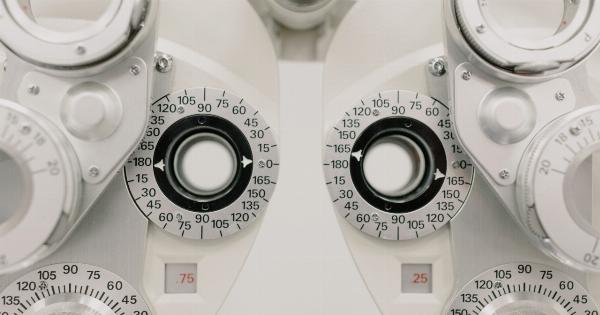Eyesight is one of our most precious senses, allowing us to see and connect with the world around us. Unfortunately, many people experience vision problems at some point in their lives, whether it’s due to genetics, aging, or other factors.
When it comes to addressing these vision issues, glasses have long been a popular and effective solution. In this article, we will explore how wearing glasses can impact your eyesight and overall eye health.
The role of glasses in correcting vision
Glasses serve the primary purpose of correcting refractive errors in our eyes, enabling us to see clearly. Refractive errors occur when the shape of the eye prevents light from focusing directly on the retina, resulting in blurred vision.
The most common types of refractive errors include nearsightedness (myopia), farsightedness (hyperopia), and astigmatism.
When you visit an optometrist or ophthalmologist, they will conduct a comprehensive eye examination to determine the specific refractive error you have and prescribe the appropriate glasses.
The lenses in glasses are specially designed to compensate for the specific refractive error, allowing light to focus properly on the retina. This correction leads to clearer vision and a sharper visual experience.
The benefits of wearing glasses
Wearing glasses offers a multitude of benefits beyond simply improving your eyesight:.
1. Enhanced clarity
Glasses provide precise vision correction, allowing you to see objects at various distances with optimal clarity. Whether you’re reading a book, driving, or enjoying the beauty of nature, glasses help you experience the world in all its detail.
2. Reduced eye strain
If you have uncorrected vision problems, your eyes may constantly strain to focus on objects, leading to eye fatigue, headaches, and discomfort. By wearing glasses, you enable your eyes to relax and reduce the strain caused by refractive errors.
This can significantly improve your overall comfort and reduce the risk of developing eye-related ailments.
3. Better safety
Uncorrected vision can compromise your safety, especially when engaging in activities such as driving or operating machinery. Glasses provide the necessary clarity to ensure you can identify potential hazards, react quickly, and stay safe.
4. Enhanced productivity
Clearer vision translates to improved productivity, as you can focus better on tasks at hand.
Whether you’re working on a computer, participating in meetings, or engaging in hobbies, glasses improve your ability to concentrate and perform at your best.
Common misconceptions about wearing glasses
Despite the numerous benefits they offer, there are some misconceptions surrounding the use of glasses:.
1. Dependency
One common myth is that wearing glasses can make your eyes dependent on them, leading to a worsening of your eyesight. However, this is untrue. Glasses do not change the structure or health of your eyes.
They are merely an external aid that improves your vision while you wear them. Your eyesight will remain the same without glasses.
2. Weakening of eye muscles
Another misconception is that wearing glasses weakens the muscles in your eyes, making your eyesight worse over time. Like the previous misconception, this is not accurate. Glasses do not have any impact on the muscles of your eyes.
Rather, they assist your eyes in focusing light accurately, relieving strain and enhancing your vision.
3. Permanent vision correction
Although glasses can significantly improve your eyesight while you wear them, they do not permanently correct your vision. Once you remove your glasses, your refractive errors will still be present.
However, constantly wearing glasses can alleviate eye strain and discomfort, making them a necessary part of your daily routine if you require vision correction.
The importance of regular eye exams
While glasses can undoubtedly alleviate vision problems, it is crucial to undergo regular eye examinations to monitor and adapt your prescription as needed.
Our eyes change over time, and an outdated prescription may not provide optimal vision correction. Additionally, eye exams can help identify potential eye diseases or conditions that may require further treatment.
Protecting your eye health
While glasses substantially improve eyesight, it’s equally important to take measures to protect your overall eye health. Here are a few essential tips:.
1. Proper cleaning and maintenance
Keep your glasses clean and free from fingerprints, dirt, or smudges. Use microfiber cloth and lens cleaning solutions specifically designed for eyewear.
2. UV protection
Invest in glasses with lenses that offer UV protection. Extended exposure to UV rays can damage various structures in your eyes, leading to conditions such as cataracts, macular degeneration, and photokeratitis.
3. Regular breaks from screens
If you spend extended periods in front of screens, be it computer monitors or smartphones, give your eyes regular breaks. Follow the 20-20-20 rule – every 20 minutes, look away at something at least 20 feet away for at least 20 seconds.
4. Maintain a healthy lifestyle
Eat a balanced diet rich in eye-healthy nutrients such as omega-3 fatty acids, vitamin C, vitamin E, and zinc. Regular exercise and proper hydration also contribute to overall eye health.
Conclusion
Glasses play a crucial role in correcting refractive errors and allowing us to experience the world with clarity. They provide numerous benefits, from enhanced vision and reduced eye strain to improved safety and productivity.
While wearing glasses can greatly improve your eyesight, it’s essential to maintain regular eye exams and take proactive measures to protect your eye health. By striking a balance between vision correction and overall eye care, you can ensure optimal eye health for years to come.






























